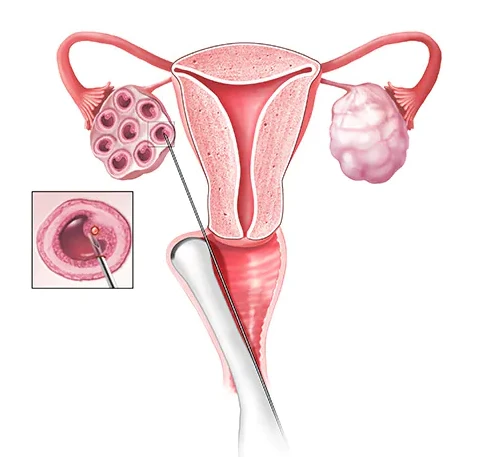In vitro fertilization (IVF) is a multi-step medical procedure that assists couples facing infertility issues in conceiving a child, particularly those who have been unsuccessful after a year or more of attempts. IVF also plays a significant role in preventing the transmission of genetic disorders to the offspring. The process begins by harvesting mature eggs from the woman’s ovaries, which are then fertilized with sperm in a laboratory setting. Following fertilization, the resulting embryos are carefully transferred into the uterus, where they can develop and grow into a baby.
A complete cycle of IVF generally spans a period of 2 to 3 weeks, though this duration may be extended depending on individual circumstances and whether certain steps need to be conducted separately. Among the various types of fertility treatments involving the manipulation of eggs, embryos, and sperm, IVF stands out as the most successful and effective approach. Collectively, these procedures fall under the umbrella term “assisted reproductive technology,” offering hope and solutions to couples worldwide who aspire to start or expand their families despite facing reproductive challenges.

Iran has emerged as a leading destination for in vitro fertilization (IVF) treatments, boasting over 50 fertility centers that cater to both local and international clients. The country’s reputation in this field is further bolstered by its highly skilled and experienced reproductive endocrinologists, making Iran an attractive option for individuals and couples worldwide seeking effective IVF solutions.
A key factor driving Iran’s popularity as an IVF hub is the exceptional balance between quality and affordability offered by its clinics. Patients are drawn to Iran for fertility treatments due to the superior medical services provided at significantly lower costs compared to other countries. As such, Iran emerges as a sensible choice for individuals exploring fertility treatments, given its unique combination of top-notch healthcare, expertise, and competitive pricing.
The Health Tourism Team at Medical Journey Co. provides comprehensive and affordable packages to cater to the specific needs of patients seeking IVF treatment in Iran.
The process of IVF in Iran is such that the patient will first be visited by a gynecologist to check the general condition of the ovaries and prescribe a series of tests and ultrasounds for the patient. Based on this, the specialist doctor will determine if the patient is a good candidate for IVF. The patient’s spouse should also be examined by a urologist.
If the couple is ready for IVF infertility treatment, the patient starts treatment on the second or third day of menstruation. Starting of treatment is with ovulation-stimulating drugs, which can be taken orally or by injection, depending on the patient’s current condition and ovarian reserve. During this period of 10 to 12 days, the patient must undergo 3 to 4 ultrasounds to check the effect of the drugs on her ovulation. This process continues until the condition of the eggs reaches an acceptable level.
After these procedures, it is time for the puncture or ovulation stage. On the day of the puncture, a sperm sample is taken from the patient’s spouse, and an egg sample is taken from the patient under a brief anesthesia, and IVF fertilization is formed through male sperm and female eggs. You then have to wait 3 to 5 days for the embryos created in the laboratory, called blastocysts, to grow properly.
On the third day, the fetus usually reaches an acceptable stage and is ready to be transferred to the mother’s uterus. The embryo transfer process is based on the number of embryos required and the quality of the embryos created, and the highest quality embryos are transferred to the mother’s uterus and the rest of the embryos will be stored in the laboratory freezer.
Anesthesia: Brief General Anesthesia
Duration of Action: 1-2 Hours
Hospitalization: None or 1 Day
Recovering: 2-3 Days
Time to Result: 15 Days
Total Stay: 3-4 Weeks
Total stay: 3-4 weeks (if recommended preliminary tests are done in the country of origin)
Note: This day-to-day itinerary is tentative and may be subject to slight change according
WhatsApp us